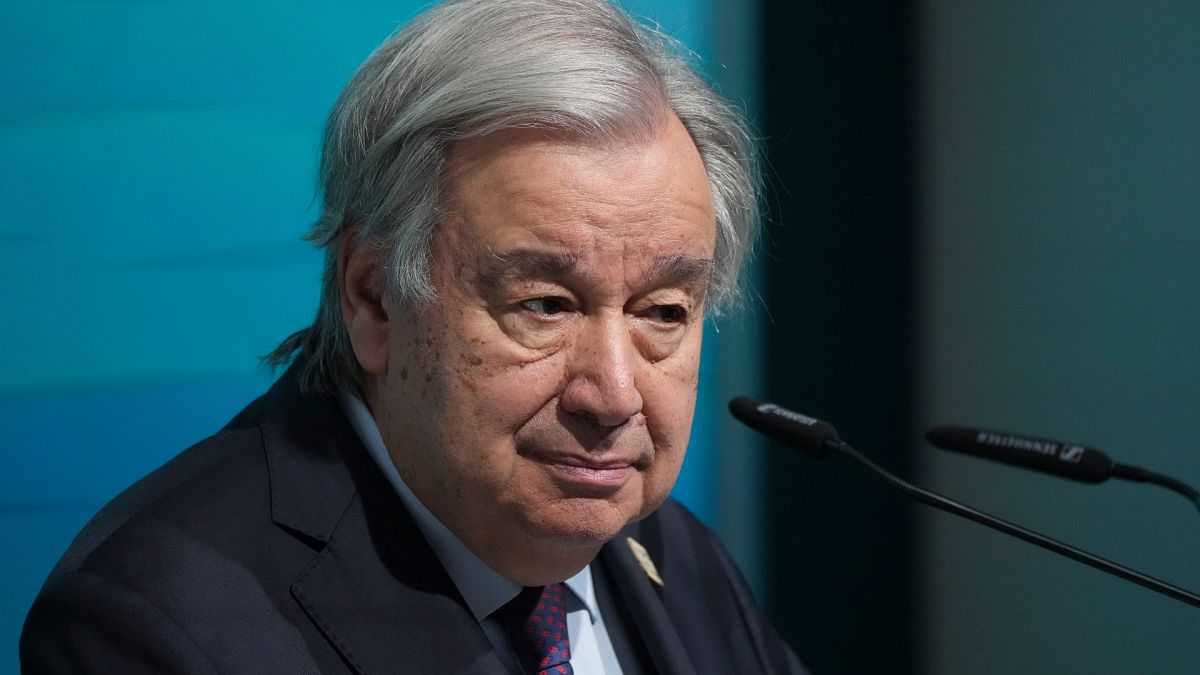United Nations Secretary-General Antonio Guterres reminded the world that every year since the Paris Agreement has been the hottest on record.
Humanity has opened a “Pandora’s box of ills” which risks upending “our very existence”, according to United Nations Secretary-General Antonio Guterres.
Laying out his priorities for the year in a speech to the General Assembly yesterday, the “raging climate crisis” was one of the crises Guterres focused on.
He added that the fires in Los Angeles are a reminder of this “Pandora’s box” of climate impacts.
“It has gone from the home of disaster movies to a scene of disaster,” Guterres told the General Assembly in New York.
The UN chief called out the fossil fuel companies which are “pocketing profits and taxpayer subsidies as their products wreak havoc”, saying that they will not be the ones to pay the price.
Instead, it will be everyone whose lives and livelihoods suffer with higher insurance premiums, volatile energy bills, and higher food prices.
Every year since the Paris Agreement has broken annual temperature records and 2024 pushed past 1.5C. Though we are “slowly bending down the curve” major action is needed this year to prevent the worst-case scenario.
So what are the UN chief’s biggest climate priorities in 2025?
It is time to ramp up the renewables rollout
“The renewables revolution is unstoppable and everyday people will benefit: With lower costs of living and better health; energy security, energy sovereignty, good jobs, and millions connected to cheap, accessible power,” Guterres said.
At COP28 in Dubai in 2023, almost 120 countries pledged to triple renewable energy capacity by 2030. Government energy targets are falling short of achieving this goal, according to the International Energy Agency.
But it isn’t all bad news. The IEA says that the growth of the renewable energy industry may surpass the limited ambitions of global governments.
The agency believes that the world’s renewable energy capacity is on track to outpace the 2030 goals set by governments to equal the combined generation of China, the EU, India and the US.
Global emissions must peak this year
“Global emissions must peak this year and rapidly decline thereafter if we are to have a sliver of a hope of limiting long-term global temperature rise to 1.5 degrees,” according to Guterres.
This year every country will have to submit new national climate plans, known as Nationally Determined Contributions (NDCs), that align with 1.5C. Together, the UN Chief said, they must cut emissions by 60 per cent by 2035 compared to 2035 levels.
“And they must show how every country will contribute to the global goals agreed at COP28 – on deforestation, and the energy transition.
“The G20 must lead, given the scale of their emissions. All this must be achieved in line with the principle of common but differentiated responsibilities.”
A stocktake of countries’ climate plans
With these climate plans expected early this year, Guterres called for a stocktake of countries’ NDCs to see whether their progress is in line with international climate targets.
“We will convene a special event to take stock of the plans of all countries, push for action to keep 1.5 within reach, and deliver climate justice,” he said.
COP30 is due to take place in Belem, Brazil later this year. After an underwhelming and fraught outcome from COP29 in Baku, Azerbaijan in December last year, the UN will be looking to put pressure on countries to up their ambition.
Phase out fossil fuels
“The battle for 1.5 cannot be won without a fast, fair and funded fossil-fuel phase-out worldwide,” Guterres told the General Assembly.
“Today, governments around the globe spend nine times more making fossil fuels cheaper than they do on making clean energy more affordable for consumers.”
Barriers like high capital costs – one-time expenses to set up projects – are preventing countries from reaping the benefits of /wind and solar power and these must be torn down, he added.
Experts say to keep global warming below dangerous limits, NDCs need to include plans for countries to phase out fossil fuels. But there has been major pushback from oil-producing nations to this specific phrasing being included in any international deals.
Climate finance must be delivered in full
Guterres concluded by saying that the world needs to deliver on climate finance “across the board” and a reform of the international financial architecture must happen.
That includes delivering the COP29 agreement on finance which saw wealthy countries pledge $300 billion (€292 billion) a year by 2035. Many developing nations said this was too little too late.
“The United Nations will help mobilise support for just energy transitions,” Guterres added.
“We will help drive the implementation of carbon pricing and the wind-down of fossil fuel subsidies. And we will support the leadership of the COP29 and COP30 Presidencies to deliver a credible roadmap to mobilise $1.3 trillion (€1.27 trillion) a year needed to support climate action in the developing world.”
The UN Chief added that it was time to implement new and innovative sources of finance including holding polluters accountable for the damage they have caused. Developed countries must also double funding for adaptation to at least $40 billion (€39 billion) a year and early warning systems for the whole world need to be implemented.
“And we need a transformation in the world’s approach to loss and damage – with a major boost to the new Fund,” Guterres said.
“To put it in perspective, the amount pledged to date is less than the recent contract signed by one baseball player in New York City.”

